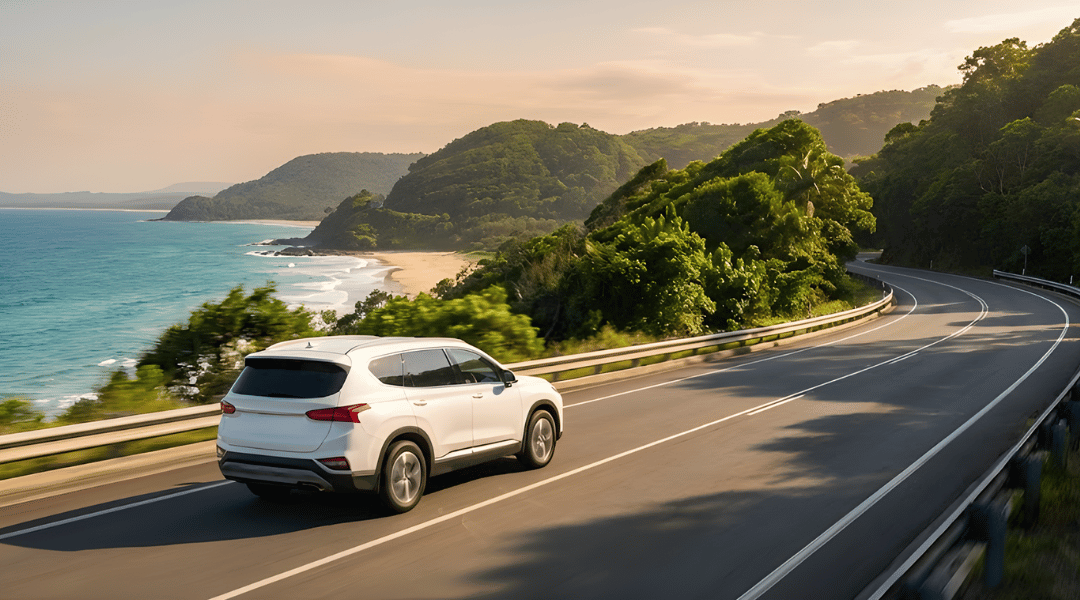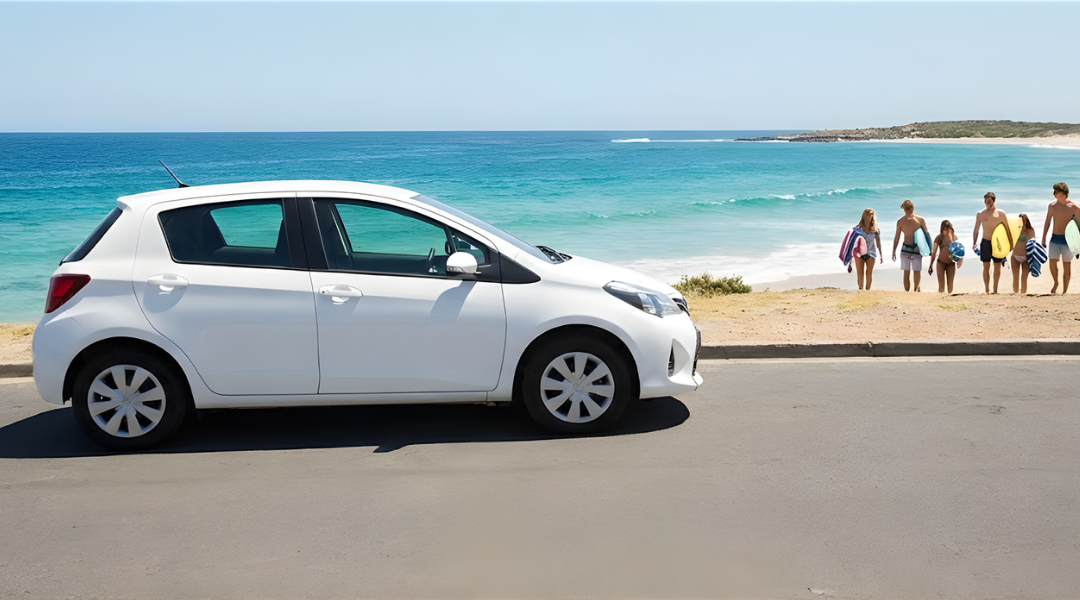[vc_row][vc_column][vc_column_text]
Gone are the days of long-term car commitments. Australians are embracing new ways to get behind the wheel, with car subscriptions emerging as a popular alternative to traditional car ownership. The automotive landscape is rapidly changing, offering consumers greater flexibility and convenience than ever before. In this post, we’ll delve into the world of car subscription, comparing it to traditional car ownership to help you decide which option best suits your lifestyle and needs.
Understanding Car Subscription
What is a car subscription?
A car subscription is a flexible vehicle ownership model that allows you to drive a car without the hassles of long-term commitment. Instead of buying or leasing a vehicle, you pay a fixed monthly fee for access to a car.
How does a car subscription work?
Car subscription services typically offer a range of vehicles to choose from, catering to different preferences and budgets. For a monthly fee, you gain access to a car, which includes insurance, maintenance, and roadside assistance. The beauty of a car subscription lies in its flexibility; you can often swap cars based on your changing needs.
Benefits of car subscription
- Flexibility: Enjoy the freedom to change cars as your lifestyle evolves.
- Convenience: Say goodbye to car ownership hassles like insurance, maintenance, and registration.
- Cost-effective: All-inclusive monthly fees can simplify budgeting.
- Access to luxury vehicles: Experience the thrill of driving high-end cars without the hefty price tag.
- Environmental impact: Some subscription services offer electric or hybrid vehicles, contributing to a greener future.
Traditional Car Ownership
Understanding Traditional Car Ownership
Traditional car ownership involves purchasing a vehicle outright or through financing and retaining ownership for an extended period. This model provides a sense of stability and control over the vehicle but also comes with significant responsibilities and costs.
Benefits of Traditional Car Ownership
- Asset Building: A car can be considered an asset that may be appreciated over time, especially for collector’s items or luxury vehicles.
- Customisation: Owners have complete freedom to personalise their vehicles with modifications, accessories, and styling.
- Equity: Building equity in a car over time can provide a financial advantage when selling or trading it in.
Costs Associated with Car Ownership
- Purchase Price: The initial cost of buying a car can be substantial, often requiring a significant upfront payment or financing.
- Depreciation: Cars depreciate over time, representing a significant loss in asset value.
- Insurance: Comprehensive car insurance is mandatory, and costs vary based on factors like vehicle type, driver profile, and location.
- Maintenance and Repairs: Regular servicing, tyre replacements, and unexpected repairs can add up over time.
- Fuel Costs: The ongoing expense of fuel contributes to the overall cost of ownership.
- Registration and Taxes: Annual registration fees and potential property taxes may apply.
Cost Comparison: Subscription vs. Ownership
Breaking Down the Costs
To make an informed decision, it’s essential to compare the costs of car subscriptions and traditional ownership.
Car Subscription Costs:
- Monthly Fee: A fixed monthly payment covers the car, insurance, maintenance, and roadside assistance.
- Potential Additional Fees: Some providers may charge extra for additional drivers or excessive mileage.
Car Ownership Costs:
- Purchase Price: The initial outlay for the vehicle, including down payment and financing.
- Depreciation: The decrease in the car’s value over time.
- Insurance: Monthly or annual premiums based on coverage and driver profile.
- Maintenance and Repairs: Costs for regular servicing, tyre replacements, and unexpected repairs.
- Fuel Costs: Expenses for gasoline or other fuels.
- Registration and Taxes: Annual fees for registering the vehicle and potential property taxes.
Factors Affecting Cost Comparison
Several factors influence which option is more cost-effective:
- Driving Habits: High-mileage drivers may find car ownership more economical in the long run.
- Location: Urban areas with public transportation options might favour car subscriptions.
- Vehicle Preference: Those desiring frequent car changes or luxury vehicles may prefer a subscription.
- Financial Situation: Large upfront costs might deter some from traditional ownership.
- Lifestyle: Flexibility and convenience are key factors for car subscription appeal.
By carefully considering these factors and conducting a thorough cost analysis, you can determine whether a car subscription or traditional ownership aligns better with your needs and budget.
Lifestyle Factors to Consider
Your lifestyle significantly influences the best choice between car subscription and traditional ownership.
Urban vs. Suburban Living
- Urban dwellers often find public transportation and ride-sharing services sufficient for their needs. Cars are frequently used for occasional outings or weekend getaways. In this case, a car subscription offers the flexibility to have a vehicle when needed without the long-term commitment of ownership.
- Suburban residents typically rely on personal vehicles for daily commutes, school drop-offs, and errands. The consistent need for a car often makes traditional ownership a more practical option.
Frequent Movers
If you frequently relocate for work or personal reasons, a car subscription provides exceptional flexibility. You can easily swap cars to suit your new environment or even pause the service during moving periods. This eliminates the hassle and costs associated with selling or transferring vehicle ownership.
Short-Term vs. Long-Term Car Needs
- Short-term vehicle requirements, such as vacations, business trips, or when your car is under repair, are well-suited to a car subscription. It offers a convenient and temporary solution without a long-term financial commitment.
- If you consistently need a car for several years, traditional ownership might be more cost-effective. Factors like depreciation and potential financing benefits over time can outweigh the initial investment.
Environmental Concerns
Car subscription services often prioritise eco-friendly options by offering a wider range of electric and hybrid vehicles. This aligns with the growing emphasis on sustainability and reducing carbon footprints. Traditional car ownership typically involves a longer commitment to a specific vehicle, which may limit your ability to choose environmentally friendly options.
Financial Implications
Financial considerations are crucial when deciding between car subscriptions and traditional ownership.
Impact on Credit Score
- Car ownership: Financing a car can positively impact your credit score if payments are made on time. However, missed payments can negatively affect your credit history.
- Car subscription: As a rental-based service, a car subscription typically doesn’t impact your credit score.
Tax Benefits in Australia
- Car ownership: While there are some tax deductions available for car-related expenses in Australia, such as depreciation for business use, the rules are complex and vary depending on your circumstances. Consulting a tax professional is recommended to understand your specific situation.
- Car subscription: Generally, car subscription fees are not tax-deductible in Australia.
Insurance Considerations
- Car ownership: You are responsible for arranging and paying for your car insurance.
- Car subscription: Insurance is typically included in the monthly fee, simplifying the process for subscribers.
Future Trends
The automotive industry is undergoing a significant transformation, driven by technological advancements and changing consumer preferences.
The Rise of Car Subscription Services
Car subscription services are rapidly gaining popularity as consumers seek more flexible and convenient transportation options.
- Expanded offerings: Subscription services are likely to expand their vehicle fleets to include a wider range of options, from electric and hybrid models to luxury and commercial vehicles.
- Customisable plans: Tailored subscription packages based on individual needs, such as mileage limits, insurance coverage, and vehicle upgrades, may become more common.
- Partnerships: Collaborations between car manufacturers, rental companies, and technology firms could lead to innovative subscription models.
Potential Changes in the Automotive Industry
The automotive industry is poised for significant disruption.
- Autonomous vehicles: The development of self-driving cars could fundamentally change car ownership, with ride-sharing and subscription services becoming more prevalent.
- Electric vehicles: The increasing adoption of electric vehicles will reshape the automotive landscape, with implications for charging infrastructure and battery technology.
- Shared mobility: Car-sharing and ride-sharing platforms are expected to grow, reducing the need for personal car ownership in urban areas.
Impact of Technology on Car Ownership
Technology is driving innovation in the automotive sector.
- Connected cars: Advanced connectivity features will enhance the driving experience and enable new services, such as remote diagnostics and over-the-air updates.
- Data analytics: The collection and analysis of vehicle data will provide valuable insights for car manufacturers, insurance companies, and consumers.
- Digital marketplaces: Online platforms will facilitate car buying, selling, and subscription processes, offering greater transparency and convenience.
The future of car ownership is likely to involve a combination of traditional ownership, car sharing, and subscription services, tailored to the evolving needs and preferences of consumers.
Conclusion
Car subscription offers flexibility, convenience, and predictable monthly costs, making it an attractive option for those who prioritise short-term needs and dislike the burdens of ownership. On the other hand, traditional car ownership provides long-term financial benefits, asset building, and customisation opportunities.
Ultimately, the best choice depends on your lifestyle, financial situation, and driving habits. Carefully consider the pros and cons of each option before making a decision.
The automotive industry is rapidly evolving, with car subscription services gaining popularity. As technology advances and consumer preferences shift, we can expect to see even more innovative options emerge in the future.
Ready to experience the freedom of a car subscription? Try Alpha Car Hire’s flexible and convenient service today. Contact us to learn more about our plans and find the perfect car for your lifestyle.
[/vc_column_text][/vc_column][/vc_row][vc_row css=”.vc_custom_1727247607569{padding-top: 40px !important;}”][vc_column][vc_raw_html]JTVCcG9kcyUyMG5hbWUlM0QlMjJjYXJfaGlyZV9sb2NhdGlvbnMlMjIlNUQlN0IlNDBjYXJfaGlyZV9sb2NhdGlvbnMlN0QlNUIlMkZwb2RzJTVE[/vc_raw_html][/vc_column][/vc_row]




